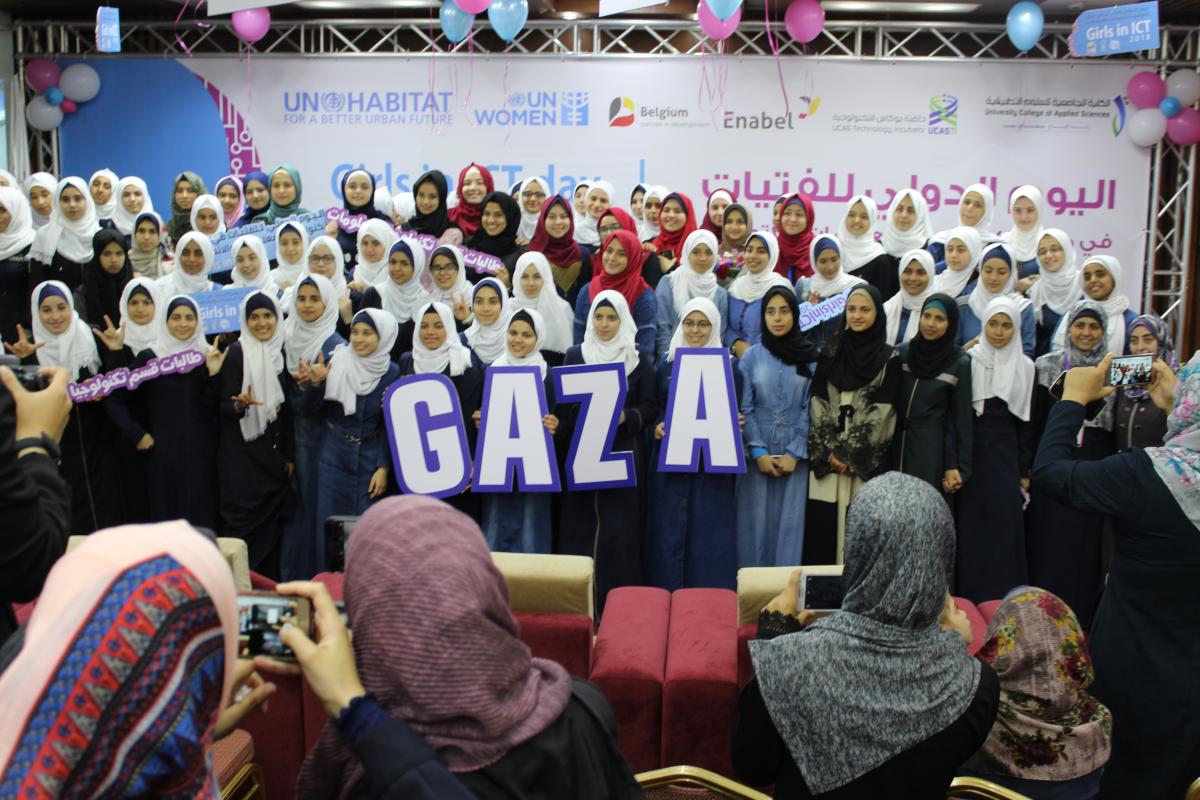Rechercher
Affichage de 2580 à 2595 sur 3126 actualités
-
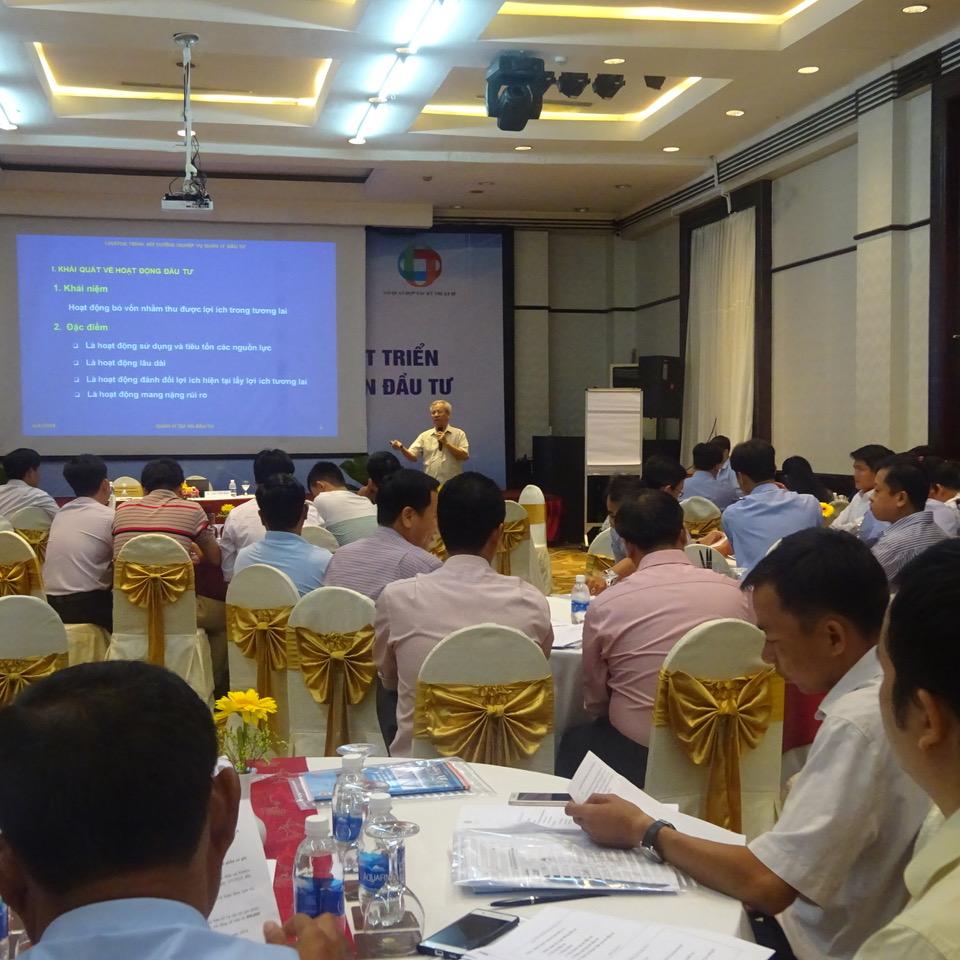
CDPR: the final actions
Erwin DICKENS | 09/05/2018
With the technical and financial support from Belgian Development Agency (Enabel) and in line with End Term Evaluation recommendations, in April and May 2018 the Capacity Development for Planning Reform (CDPR) project organized in cooperation with the MPI Training Institute five training courses in Da Nang and Ho Chi Minh city about local socio-economic development plans (SEDP) and public investment project assessment. The training courses involved participation of more than 400 trainees from various districts, communes in Central, Central Highland and Mekong Delta regions. Theoretical and practical knowledge about preparation, monitoring and evaluation of SEDPs, evaluation of public investments, followed by problem case solving, were organised in a real-life manner.”
-
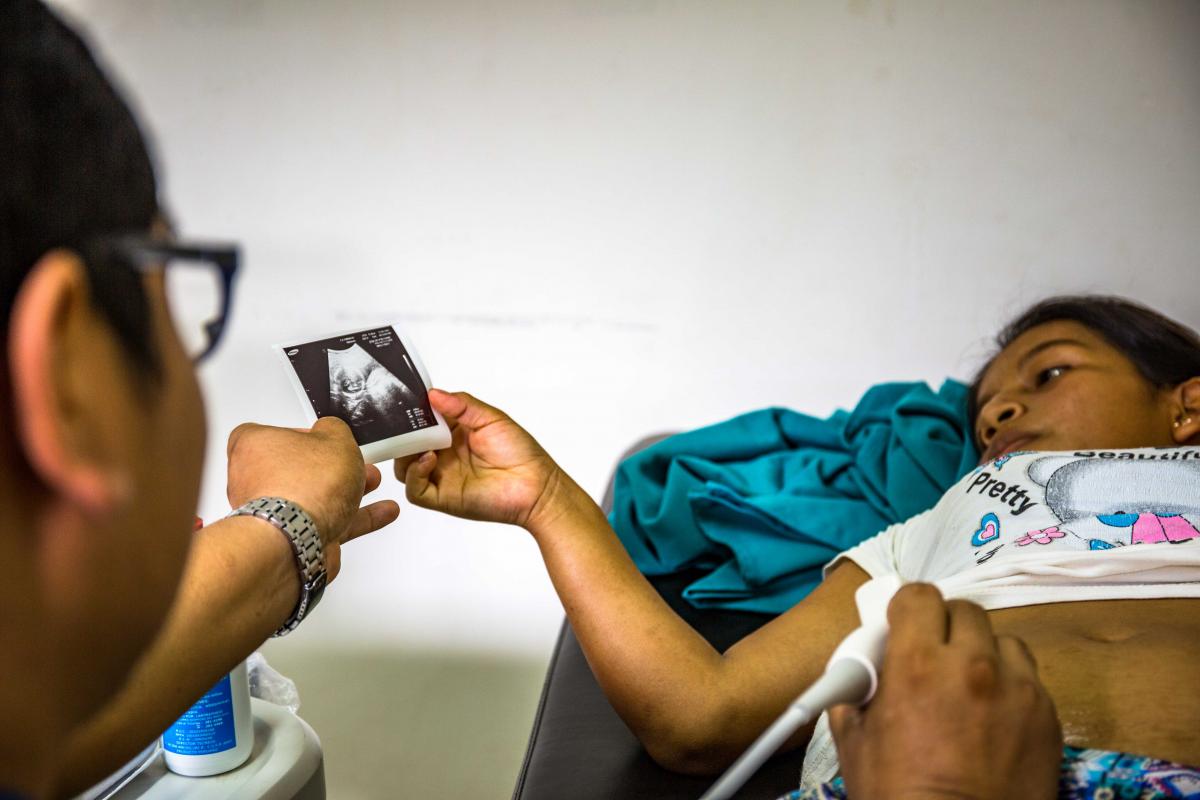
Investigación - Acción sobre la asignación de recursos en Unidades Ejecutoras de Salud
Véronique GERARD | 08/05/2018
En el Perú, el Ministerio de Economía y Finanzas (MEF) implementó, en 2007, el Presupuesto por Resultados (PpR) como una estrategia para modernizar la manera tradicional de formular el presupuesto público. A diferencia de esta, que se basa en la asignación histórica (incrementalismo), el PpR busca el cumplimiento de resultados, medidos con indicadores previamente definidos. Siguiendo esta lógica, el Programa Presupuestario de Salud Materno Neonatal (PPSMN), cuyo resultado final es la reducción de la morbimortalidad materna y neonatal, fue uno de los primeros que se implementó en 2008. En 2014, el MEF, el Seguro Integral de Salud-SIS y los Gobiernos Regionales de Amazonas y Cajamarca firmaron un convenio cuyo objetivo era incrementar la cobertura del Programa de salud materno neonatal. Para ello, contó con recursos de la Cooperación Belga a través de la Agencia Belga de Desarrollo (CTB-Perú - Enabel).Estas regiones fueron priorizadas por tener gran población vulnerable y altas tasas de morbi-mortalidad materna y neonatal. Para reducir los cuellos de botella a nivel local y mejorar la provisión de servicios de calidad, se diseñó una Investigación Acción de los procesos decisionales de la asignación de recursos y su monitoreo y control. La investigación describe el funcionamiento de Unidades Ejecutoras en salud, analiza sus desafíos y cuellos de botellas. También, se describe como las Unidades Ejecutoras han pasado por el ejercicio de priorización y ejecución de sus gastos a través de un ciclo de mejora. Por fin también recomienda acciones para facilitar una investigación acción en base a esta experiencia. Encuentren a continuación el informe de esta investigación: https://drive.google.com/drive/u/1/folders/1KZ4pL_bj3wEE-d2nDngJlYL7wvyzhDCk
-

Enabel au Salon International de l'Agriculture au Maroc
Meriem HILALI | 08/05/2018
Pour la 8ème fois consécutive, l’Agence belge de développement a participé activement au Salon international de l’agriculture (SIAM) de Meknès. Cette année, pour la première fois, Enabel y assurait une triple présence. Dans le pôle « international », tous les projets d’appui à l’agriculture solidaire maroco-belges étaient présents dans un stand où les animatrices du projet d’appui aux filières du safran et du palmier dattier ont pu montrer les résultats impressionnants des cours d’alphabétisation fonctionnelle des femmes rurales. Pour la première fois cette année, dans le pôle « produits », l’équipe du même projet animait un stand « BtoB » pour promouvoir les produits des coopératives partenaires auprès de gros acheteurs potentiels. Enfin, dans le pôle « produits du terroir », les coopératives et groupements d’intérêt économique partenaires des filières safran, dattes et amandes exposaient et vendaient leurs produits au public, en présence des équipes d’animateurs des projets qui les ont accompagnés jusque-là. Saluons la coopérative d’amandes de Sidi Bouhria (région de l’Oriental) qui a eu l’honneur d’obtenir la médaille de bronze dans la catégorie de fruits et légumes du Concours marocain des produits du terroir.
-

Enabel au Salon international de l'Agriculture
Meriem HILALI | 08/05/2018
Pour la 8ème fois consécutive, l’Agence belge de développement a participé activement au Salon international de l’agriculture (SIAM) de Meknès. Cette année, pour la première fois, Enabel y assurait une triple présence. Dans le pôle « international », tous les projets d’appui à l’agriculture solidaire maroco-belges étaient présents dans un stand où les animatrices du projet d’appui aux filières du safran et du palmier dattier ont pu montrer les résultats impressionnants des cours d’alphabétisation fonctionnelle des femmes rurales. Pour la première fois cette année, dans le pôle « produits », l’équipe du même projet animait un stand « BtoB » pour promouvoir les produits des coopératives partenaires auprès de gros acheteurs potentiels. Enfin, dans le pôle « produits du terroir », les coopératives et groupements d’intérêt économique partenaires des filières safran, dattes et amandes exposaient et vendaient leurs produits au public, en présence des équipes d’animateurs des projets qui les ont accompagnés jusque-là. Saluons la coopérative d’amandes de Sidi Bouhria (région de l’Oriental) qui a eu l’honneur d’obtenir la médaille de bronze dans la catégorie de fruits et légumes du Concours marocain des produits du terroir.
-

Enabel au Salon International de l'Agriculture au Maroc
Meriem HILALI | 08/05/2018
Pour la 8ème fois consécutive, l’Agence belge de développement a participé activement au Salon international de l’agriculture (SIAM) de Meknès. Cette année, pour la première fois, Enabel y assurait une triple présence. Dans le pôle « international », tous les projets d’appui à l’agriculture solidaire maroco-belges étaient présents dans un stand où les animatrices du projet d’appui aux filières du safran et du palmier dattier ont pu montrer les résultats impressionnants des cours d’alphabétisation fonctionnelle des femmes rurales. Pour la première fois cette année, dans le pôle « produits », l’équipe du même projet animait un stand « BtoB » pour promouvoir les produits des coopératives partenaires auprès de gros acheteurs potentiels. Enfin, dans le pôle « produits du terroir », les coopératives et groupements d’intérêt économique partenaires des filières safran, dattes et amandes exposaient et vendaient leurs produits au public, en présence des équipes d’animateurs des projets qui les ont accompagnés jusque-là. Saluons la coopérative d’amandes de Sidi Bouhria (région de l’Oriental) qui a eu l’honneur d’obtenir la médaille de bronze dans la catégorie de fruits et légumes du Concours marocain des produits du terroir.
-
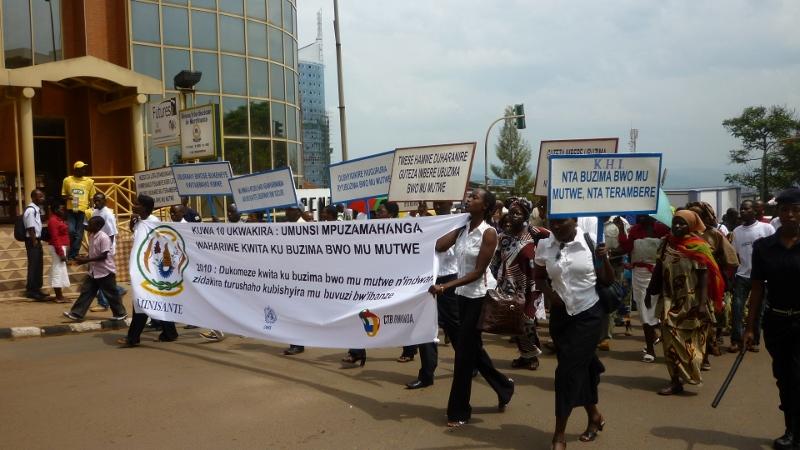
Integration of mental health care in primary health care to increase accessibility in Rwanda
Ellen VAN HIMBERGEN | 07/05/2018
Mental health, a serious health challenge in the worldMental health is one of the most serious health challenges in the world. Globally, 700 million people are estimated to suffer from mental and behavioural disorders and one out of four people will develop one or more of these disorders during their lifetime. Three out of four people with mental health problems live in low- and middle-income countries (LMIC) and yet up to 90% of people living with mental illness in these countries do not receive mental health services. One of the biggest reasons behind this “treatment gap” is underinvestment. Low-income countries spend less than 1% of their health budgets on mental health, while less than 1% of global development funding for health is spent on mental health. In spite of the chronic and long-term nature of some mental disorders, with the proper treatment, people suffering from mental disorders can live productive lives and be a vital part of their communities. Mental disorders represent a huge cost to health care systems and to the global economy, and affect some of the world’s most vulnerable people, through stigma and lack understanding. In 2015 the world took a huge step forward by including mental health in the Sustainable Development Goals (SDGs), which fixed the global development agenda for the next three decades.Mental health, priority area of intervention in RwandaIn Rwanda, the available data show that the country faces an exceptionally large burden of mental disorders and much of the country’s burden of mental disorders can be linked to the Genocide against the Tutsi in 1994. Furthermore certain mental disorders such depression and post-traumatic stress disorder (PTSD) are described with proportions beyond international averages. One out of four people suffers from PTSD and prevalence of depression is 15.5 to 21% depending of the study. Drug abuse, particularly among young people, is a new mental health challenge in Rwanda and prevalence of epilepsy is high (5%), making mental health a serious public health problem in the country. Mental health is clearly identified within the overall Health Sector Policy as a priority area of intervention. This policy recommends the integration of mental health services into all national health system structures, including at the community level. On the contrary to many developing countries, Rwanda is on the forefront in terms of developing a sustained and sustainable national response to the burden of disease caused by psychological and neurological disorders, as well as substance abuse. Mental health in Belgium Cooperation context in RwandaThe Belgian Cooperation supports the development of mental health services in Rwanda over more than a decade and is the only bilateral donor working on this thematic. The Mental Health intervention provides technical and financial support to decentralize mental health care into general care and integrate mental health care into primary health care. This support is mainly through capacity building, equipment, mentorship & supervision and training of health professionals to deal with mental disorders including substance abuse related issues. This intervention supports also psychological interventions during the Genocide commemoration period. In order to ensure the success and quality of the integration of mental health care, the intervention supports the Mental Health Division of Rwanda Biomedical Center / Ministry of Health as well as the national mental health reference structures.Key progress in the decentralisation and integration of mental health careThe officially-approved Mental Health Policy, (introduced in 1995 and reviewed in 2011) has initiated a process of decentralization and integration of mental health care as well as the creation of referral services. At the central level, there is the Mental Health Division within the Rwandan Biomedical Center in the Ministry of Health. Its main mission is to implement the Mental Health Policy through a strategic plan under the guidance of the Health Sector Strategic Plan. Mental health is now integrated into the package of care of health centers, district hospitals, provincial hospitals and referral hospitals. Obviously, mental health services and resources were shifted from the psychiatric hospital to the community health facilities: District Hospitals (DH) and Health Centers (HC).Mental health services are effectively decentralised. Each of the country's DH & PH (43), through the Mental Health Unit, delivers a comprehensive mental health care package according to the national standards. Within this framework, each mental health unit provides inpatient and outpatient mental health care, including analysis and diagnosis, treatment and follow-up, rehabilitative measures, counselling and interaction with families. If necessary, the patient will be referred to mental health referral settings. Mental health units are staffed by a permanent team comprising one or two psychiatric nurses and one psychologist providing a broad range of mental health services under the supervision of a physician trained in mental health care. There are 66 psychiatric nurses and 41 psychologists working in mental health units in district hospitals and at least one GP gets hands-on training. Each mental health team receives on-site formative supervision and participates in regular case review sessions led by a mental health team from the national referral structures. General Nurses working in health centres and CHWs were trained to ensure an integrated mental health care component in health centres and at community level. CHWs serve as an important link between the community and health providers. In this context 766 General Nurses in Health Centers, more than 15000 CHWs and important number of volunteers (local NGOs & association) were trained annually. A stepped-care approach is provided: from health centres in rural areas, to district hospitals and then mental health referral settings in Kigali. Consequently, patients are treated as near as possible to their home and then receive hospital treatment only after community treatment has failed. A specific list of essential psychotropic medicines has been established for each level of the health system. These psychotropic medicines are part of the national list of essential medicines. Mental health care is integrated into the community-based health insurance (CBHI) scheme (Mutuelles de santé), which allows mentally ill people, similar to other patients, to pay at most a 10% co-payment for psychotropic medicines and services. There is no co-payment for the lowest incomes. By decentralizing mental health services and integrating mental health care into CBHI, the accessibility was increased, and the number of transfers to mental health referral structures was reduced. Data from the national health management information system (HMIS) shows that in 2016, all mental health units at DHs level received 26.060 new mental health cases and performed 201.902 outpatient consultations and 3.236 hospitalizations, with only 779 transfers to mental health referral structures. Rwanda still lacks staff with an educational background in psychiatry. Up to 2017 there were only 7 psychiatrists in the health system. In 2013, the University of Rwanda launched a third-cycle specialization in psychiatry to increase the pool of trained psychiatrists in the country. Specialists can ensure quality of care and expand health care provision. The first 3 psychiatrists were graduated in August 2017 and 10 students are enrolled within the program in collaboration with Belgium and Switzerland universities. In the area of prevention of drug abuse, regular awareness campaigns are conducted targeting young people. A specialized structure for the treatment of drug-related disorders has just been set up. Integrating mental health care into Primary Health Care (PHC) is a great opportunity to intervene early and prevent chronicity. It is also an opportunity to involve communities and increase accessibility to mental health care which can be provided close to the community.
-
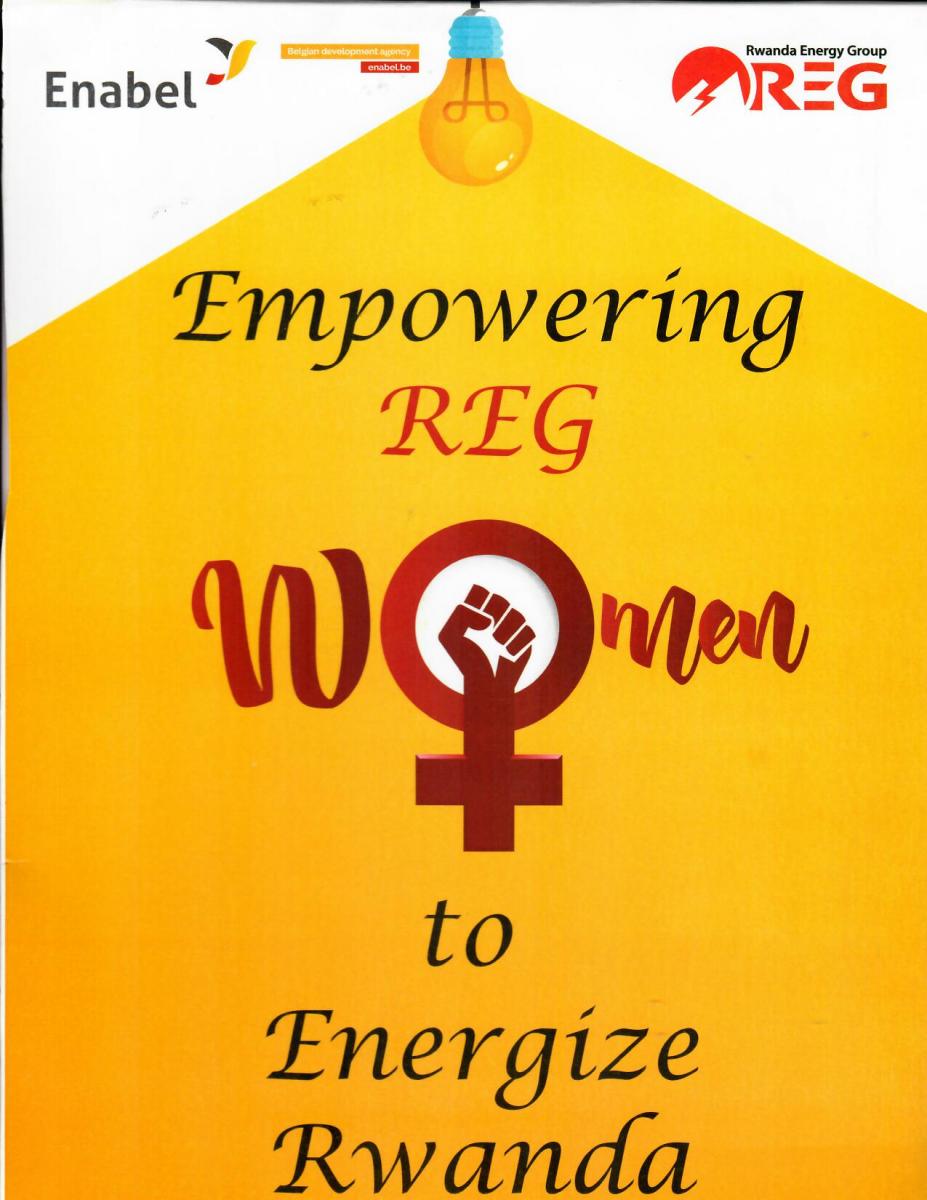
Empowering Women to Energize Rwanda
Ellen VAN HIMBERGEN | 07/05/2018
On March 23, the launching of the Rwanda Energy Group’s (REG) Gender Mainstreaming Program took place through the important workshop « Empowering REG Women to Energize Rwanda ». All women of REG, nationwide and from all different levels within the organization, have been invited to the workshop to meet each other, discuss gender issues in REG, give voice to their ideas and suggestions on what issues they face and what actions they recommend to accomplish change. The launching of the REG Gender Mainstreaming Program is the first important step in the journey towards advancing gender equality and equity in REG – to ensuring women’s full participation in the success of REG and the development of Rwanda. Due to historical, cultural, social and educational reasons, REG, just as many other organizations in the energy sector, have low participant rates of women on their staff. With this program, REG aims not only to develop the capability of present men and women, but also to actively attract and recruit more women into the organization at all levels and in all categories of jobs. Today, REG women make up approximately 18% of the total staff and very few women are in decision making roles. As a first goal, REG hopes to reach the Government of Rwanda’s target and have 30% women in all levels in the organization in the next three years. After this workshop, the next step is a first meeting with the REG’s gender focal points and the Advisory Committee Members elected during the workshop to review the proceedings of the meeting and to decide on the way forward, to then prepare the presentation to the senior management of REG. Reactions of participants: “This is the first time for me to meet colleagues from other provinces in Rwanda. We don’t know each other, but still we find out we face the same challenges.” “I really encourage the development of a policy on gender equality and equity. I hope it will also include a strategy of retaining women in the organization, which will better enable the appointment of women in management positions aswell.” Enabel in Rwanda funds two interventions in partnership with REG: the three Belgian contributions to the Electricity Access Roll-Out Programme (BE-EARP) and Institutional Strengthening and Capacity Development (CDEU). At Enabel we recognize the importance of developing and harnessing the capability of all people to increase the performance not just of organizations, but also as a key contributor to the development of the country. That is why at Enabel we include Gender as a component in all interventions.
-
Kigali hospital network
Ellen VAN HIMBERGEN | 07/05/2018
The Ubuzima Burambye (Long Healthy Life) Program is supported by Enabel and implemented under management of Rwanda's Ministry of Health (MoH) in partnership with Rwanda Biomedical Center (RBC) and the City of Kigali (CoK). This program officially started in July 2015 and its implementation phase is scheduled to last 48 months. The general objective of this intervention is to "strengthen the quality of primary health care and health services in Rwanda". To properly manage the complexity of health issues in the City of Kigali (CoK), intensified by the rapid population growth with fast urbanization, several strategies have been proposed. One of them, supported by UBUZIMA BURAMBYE (UB), is related to the development of a hospital network for the CoK in order to produce efficient, organized, rationalized and integrated health offer in an urban context. Integration of resources (human, logistics, etc.), better articulation between all actors, sharing harmonized health information, improving reference system, merging technically complex services can considerably improve health services efficacy, continuity of care, and reduce the costs and fragmentation with better efficiency. In line with the national health policy, Kigali Hospital Network is mandated to “Promote complimentary between hospitals in their common production of qualitative, continuous and accessible and integrated healthcare to face the rapid evolution of the needs of the citizens in the city of Kigali who are increasing rapidly and face profound demographic and epidemiologic changes” The development of the network concerns 11 Hospitals in CoK: 3 National referral hospitals, 3 public District Hospitals and 4 Private hospitals. The main strategic interventions that are currently supported by UB include: Optimization of specialized and quality services delivery through regular exchange of experience/expertise, skills and information. In 2018, this includes 16 modules elaborated by specialists to be shared at district hospital level for medical staff; Define the vision, strategies, mechanisms and the resources needed towards a sustainable Hospital Information Network program by digitalization. The draft strategy hereto is to be validated; Improve the information sharing between hospitals in the city of Kigali through a web-based dashboard for the 11 health facilities. At this moment, the development of a plan to share real time information to improve the referral system (availability of beds, ambulance, specific medical specialities, specific diagnostic equipment, etc.) is ongoing;Develop a tele-medicine system initially directed to tele diagnostic: this year, a "Picture Archiving and Communication System" (PACS) will be procured. In a second phase, the set-up of a harmonized electronic patient file between network member facilities to keep a continuum of care and consistency in service delivery will be developed.
-
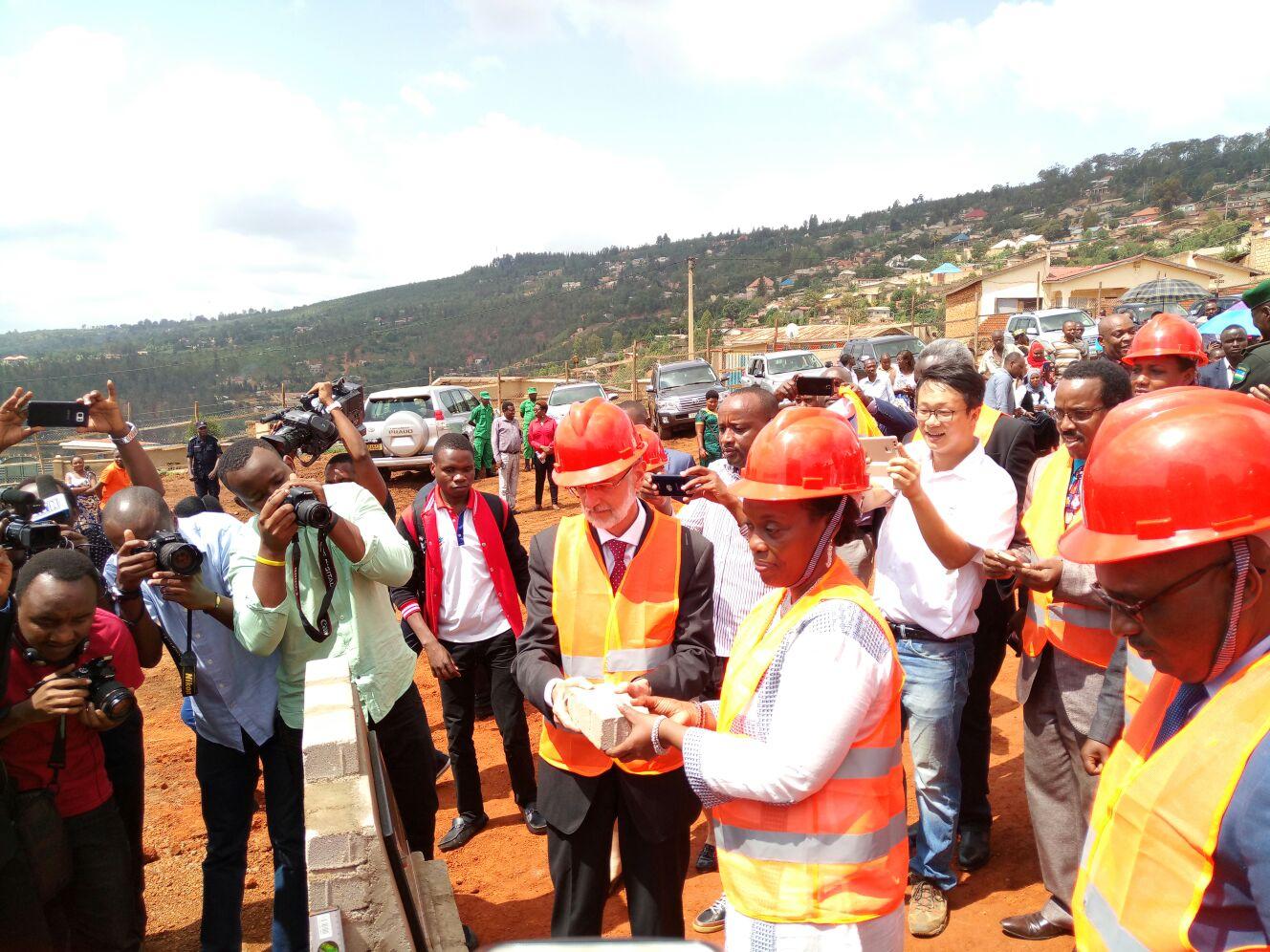
Nyarugenge District hospital: ceremony of first stone laying
Ellen VAN HIMBERGEN | 07/05/2018
On the 9th February 2018, the first stone of the Nyarugenge District Hospital was laid by Hon. Minister of Health, Dr. Diane Gashumba and by His Excellence Belgian Ambassador Benoit Ryelandt with the presence of The Mayor of Kigali and the Mayor of Nyarugenge. In relation with the decentralization policy, the Nyarugenge District Hospital is the largest infrastructure project to be managed by the district, funded by the Kingdom of Belgium and the Government of Rwanda. The project is co-managed by Enabel’s Ubuzima Burambye program and benefits from technical support from Rwanda Biomedical Center and the Ministry of Health. The hospital responds to a high demand for more than 300,000 Nyarugenge residents. It is expected to become a model of excellence and innovation in terms of organization, patient flowing, high standards of care, healthy working conditions, respect for environment, sound waste management, energy saving, isolation and network connection. The construction will take place in 2 phases: the first one will provide a fully equipped and functional 120-bed hospital by July 2019, including outpatient, inpatient, emergency and supportive services and utility buildings. The phase 2 will increase the capacity up to 300 beds to better cover needs of district population.
-
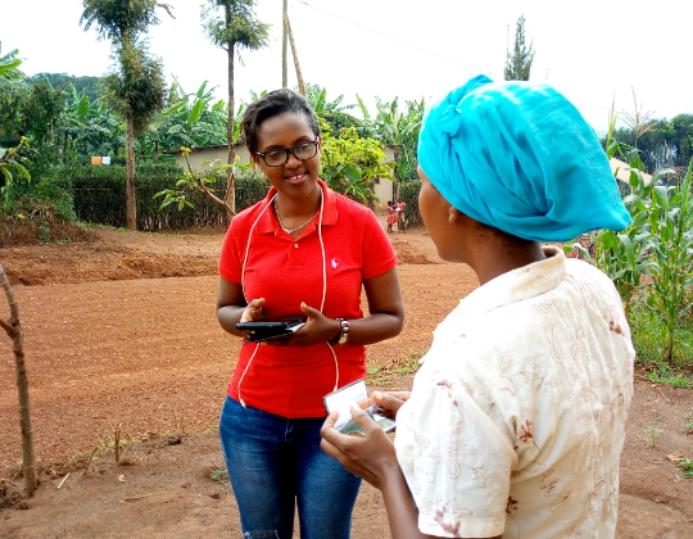
The use of digital technologies for sound decision making
Ellen VAN HIMBERGEN | 07/05/2018
Enabel optimizes its own internal processes and systems using the latest technologies in communication, management and results monitoring. We support out partners to build knowledge-driven institutions through the development of ‘open data’ strategies underpinned by the use and analysis of big data. This ranges from data of telecommunications operators to the provision of geographical information collected by interventions. Example from Rwanda: Mobile data collection for the BE1-EARP intervention’s baseline The Belgian contribution to the Electricity Access Roll-Out Programme (BE1-EARP) aims to improve the access to reliable on-grid electricity services in rural areas in Rwamagana, Ngoma and Kirehe districts. The main activity to achieve this is the electricity grid extension in specific lots in these districts with the construction of new transmission and distributing lines connected to the national electricity network. The existing houses, public institutions and businesses in the intervention area are then connected to this grid.In the end of 2017, the construction works in Rwamagana were completed. Parallel with the final stage of the works in December, the intervention conducted a survey amongst a large sample of beneficiaries. Out of apx. 8000 new connections, a sample of 954 households and 152 non-households (non-residential customers such as small businesses and churches, and to a smaller extent also schools, health centers and cell offices) were interviewed using Kobo Toolbox, an open source mobile data collection tool. Increased data quality through mobile data collection The survey is conducted by use of a mobile data collection tool, Kobo Toolbox. After a one-day training and a pilot survey, a team of 7 data collectors visited all respondents for face-to-face interviews and presented them a set of questions. Answers were registered on tablets, containing the pre-programmed surveys with apx. 50-70 questions (taking into account different scenarios in the course of the survey). A great advantage of Kobo Toolbox is that it can be used offline, as all the interviews took place in remote areas.However, the improved data quality is the most important advantage. The data collectors upload the completed surveys every evening to the Kobo platform, which then automatically generates a database of collected data. This allows real-time monitoring and easy data analysis. The skip patterns and validation functions (build-in limitations for data entry) inside the tool ensure both the logic of the survey and of the answer to each question. Working with digital tools also avoids the risk of post-survey data entry mistakes, which is often the case with paper based surveys. Through the survey, data were collected regarding the current energy consumption of households and non-households, and their intentions and expectations regarding the future (after connection to the on-grid electricity). The obtained data allow the intervention to better understand the potential results on outcome level as well as they point out challenges to be considered. 53% of the sampled households responded using torchlights to brighten their houses (possibly in combination with other traditional sources), while others are found using candles and off-grid solar lamps as lighting solutions. 97.8% of households and 99.3% of non-households expressed their willingness to connect to the grid. People not only expect to better their lives with improved lighting solutions, they also foresee positive changes in the community as electricity opens up new economic opportunities, improve health facilities and delivery of public services. However, the biggest challenge is the cost of electricity and its affordability for the households. The current energy related expenditures of sampled households are found to be on average a monthly 1905 RwF. With this amount, households will not be able to consume more electricity than what is required for basic lighting and mobile phone battery charging. The looming question is thus will the cost of electricity risks prohibit certain section of household to reap the benefits of electricity despite being connected to the grid? Are the benefits for the population sufficient to justify an investment equivalent to apx. 300 months of electricity consumption for the average household? A similar baseline survey will take place in Ngoma and Kirehe during the next months. In a second phase, there will be a follow-up survey amongst the same sample of beneficiaries in all 3 districts. The follow-up survey is planned to take place minimum 1 year after the baseline survey and will serve to get better insight in whether and to what extent beneficiaries make use of electricity, the reasons why they potentially don’t and whether or not access to on-grid electricity has resulted into (direct or indirect) socio-economic results, and thereby provides data for the intervention to measure results on outcome level.
-
International Girls in ICT Day
Laura SCHILLEMANS | 03/05/2018
Information and Communication Technologies (ICTs) drive growth and innovation worldwide, infiltrating all aspects of our lives. Ongoing evolutions in ICTs effectively make digital literacy a prerequisite for employment and entrepreneurship. Studies show that not enough young people are choosing careers in ICT - especially not enough young women. Expanding the global technology talent pool to include more women with ICT skills can help fill this gap. This means investing in girls and young women today. International Girls in ICT Day, an initiative backed by all ITU Member States in ITU Plenipotentiary Resolution 70 (Rev. Busan, 2014), aims to create a global environment that empowers and encourages girls and young women to consider careers in the growing field of ICTs, enabling both girls and technology companies to reap the benefits of greater female participation in the ICT sector. Enabel supports this initiative to encourage gender mainstreaming in the ICT sector and in the related TVET (Technical and Vocational Training) courses. “Enabel participates in this event through the ECIB program, which focuses heavily on promoting the participation of girls in TVET, specifically in the non-traditional professions like ICT. This event is an ideal opportunity to introduce girls to the ICT sector and to encourage them to participate in and join vocational and technical education in ICT.” said Mrs. Haneen Abu Nahla. Enabel – Gaza Program Manager. On Monday the 30th of April,Young women in Gaza joined other (ITU) members states in celebrating the International Girls in ICT Day at the University College of Applied Science. High school students and representatives from CSOs, CBOs, Colleges and universities all joined the event that was exclusively held for girls and young women. Next to promoting ICT careers, the event also aimed at encouraging girls in high schools to build innovative projects in ICT and to extend their knowledge about the locally available ICT jobs and opportunities. During the opening speeches, the president of UCAS, Dr. Rifat Rustom, motivated women toconsider the countless possibilities and benefits of careers in ICT. He stated: “Girls with ICT skills will never be out of work. They will earn salaries that put them on par with the highest paid professionals like lawyers or doctors. What we see from studies and research confirms that the coming years will witness a radical change in the of ICT, so we have harnessed all our potential to keep up with these changes …”. He also stated a warm gratitude for Enabel, UN Women and UN-Habitat for their contribution, which played a significant role in the success of this event. After Dr. Rustom’s speech, the Deputy Minister of Communications and Information Technology, Eng. Suhail Madoukh spoke about the Ministry’s commitment to the cause of promoting and encouraging girls and young women to pursue career paths in ICT. He went on to mention that it is critically important to stay competent in such fields as its rapidly evolving and serves all other fields including health and education. Ms. Amira Haroun– Deputy minister of Women Affairs took a part as well, through her word she emphasized the importance of this sector as being a crossing-boarder sector that can play a vital role in reducing the high unemployment rate in the Gaza strip by giving young women the opportunity to take the lead and be creative. The opening remarks were concluded by a video statement from Ms. Rawda Al Ameer Ali – Arab Delegate of the International Telecommunication Union (ITU). She stated that it is important for girls to start thinking about switching from being technology consumers to becoming creators and innovators. She also shed the light on the importance of this event in encouraging girls to consider careers in ICT. The next activity included the announcement of five winners who have participated in the public tech information competition which was launched one month before. Girls in high schools, colleges, universities, Institutions and technology incubators and were honored. Three winners of them were from Abd Al Moati Alrayis Vocational school. After a round of applause and before the coffee break, the Technological exhibition was opened, where female participants from the 8th, 9th, 10th grade and Vocational schools (Abd Al Moati Alrayis and Mostafa Al Rafie Secondary School For Deaf) had the chance to get familiar with different specialities in ICT including graphic design and smartphone application development. They also had the opportunity to express their views, opinions and ask questions. Later that day, several women role models and entrepreneurs from the country’s ICT sector gave motivational talks to students on the growing and rewarding careers in ICT in the Gaza Strip, equipping them with the necessary skills to help them overcome the obstacles and pursue their dreams. Everyone agreed that encouraging women and girls to pursue ICT careers also creates a more dynamic technology sector, offering extensive benefits to companies, and that a more gender-balanced workforce reflects the customer base more accurately, enhances productivity and innovation and leads to better financial results. The last activity included a workshop to test the general tech knowledge of college and high school students in order to increase the potential and social awareness about many positions in the sector. The participants were split up into several groups to ask questions, brainstorm and identify problems and issues that were preventing females from pursuing ICT as a career path. The group that came up with the best outcome was honored.
-
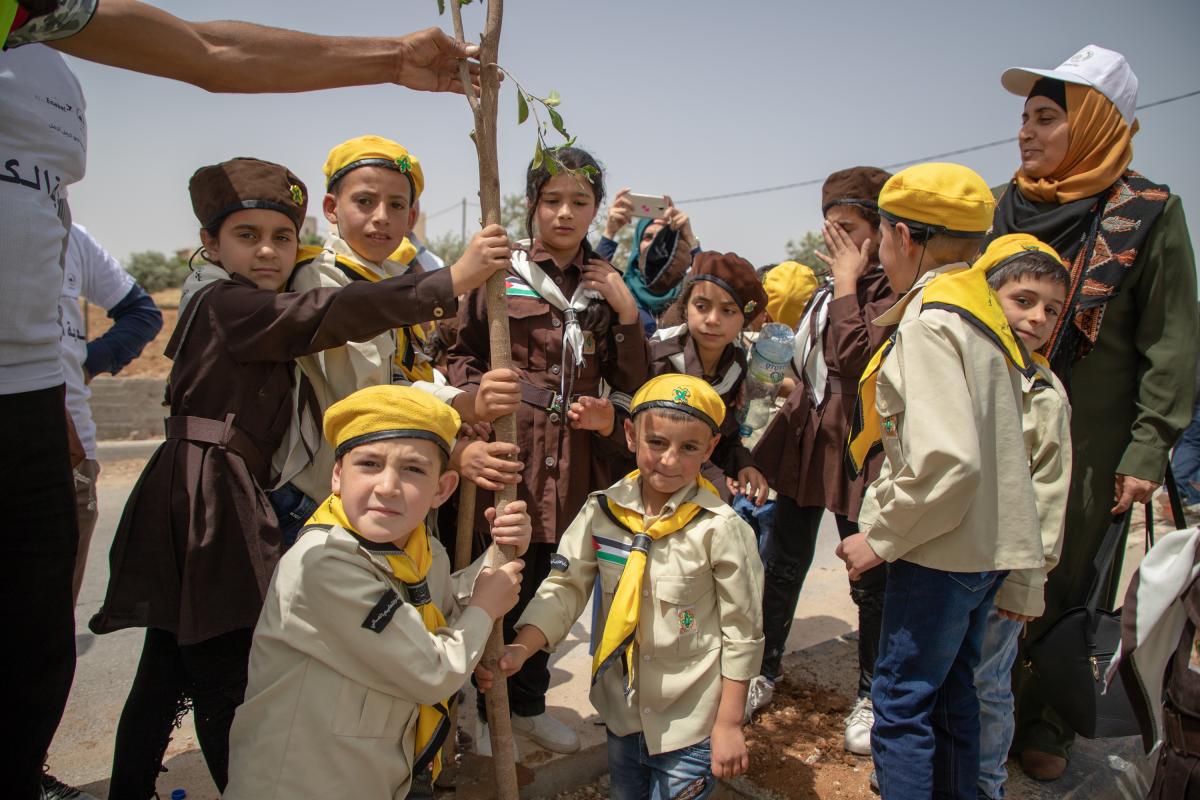
Planting trees during Al Karmil’s Environmental Week
Laura SCHILLEMANS | 03/05/2018
On Wednesday, the final event to celebrate the end of Al Karmil’s Environmental Week took place in the South Hebron Governorate. Students from 9 schools participated in the event, planting trees, cleaning schools, and attending awareness sessions on the environment and voluntary work. On the last day, Al Karmil school’s parents committee, youth club, women association, scout troop and volunteers planted trees in the main street of Al Karmil and at the mixed elementary school, together with mayor Tawfik Abu Malash, the Khalet Al Maya village council and the Palestine Red Crescent society. Environmental Week is an activity supported by Enabel (The Belgian Development Agency) as part of the local governance activities in the cluster.
-
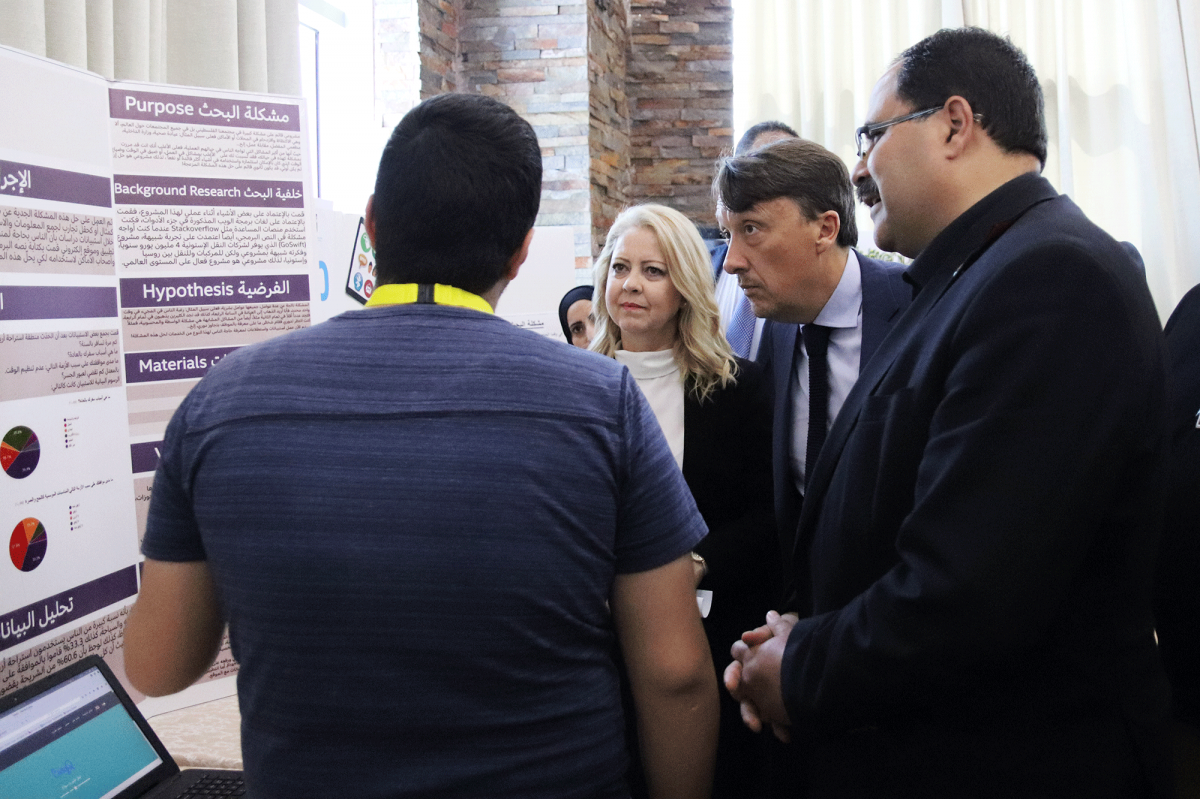
Celebrating young Palestinian mobile app developers
Laura SCHILLEMANS | 03/05/2018
Last Sunday we celebrated young Palestinian app developers during the Palestine Mobile App Fair. The fair was inaugurated by the Minister of Education and Higher Education, H.E. Dr. Sabri Saidam and attended by the advisor of the Prime Minister, Mrs. Khayrieh Risass, next to the Head of Development Cooperation at the Consulate General of Belgium, Mr. Eric De Muynck; representatives of the Joint Financing Arrangement (JFA), student, parents and teachers.Many students, teachers and judges worked hard to make the event succeed, by implementing scientific projects in schools, creating mobile applications for mobile devices and by contributing to the development of the creativity and the scientific research competencies of the students. H.E. Dr. Saidam stressed the necessity to adapt technology to serve human needs. He was pleased with the students' creations, which reflect the Palestinian quest for development and innovation, while praising the ministry’s achievements in many technological areas. Mr. De Muynck congratulated all the students and teachers on behalf of Belgium, Norway, Finland, Germany and Ireland, the partner countries of the Joint Financing Arrangement (JFA) who supported the event. He expressed his gratitude to be able to meet the bright Palestinian minds who developed great applications, noting that “nowadays there are no more barriers between digitalization, technology and education. For the younger generation it all comes naturally. They are the hope of the nation, showing that creativity overcomes boundaries”. He also mentioned Belgium’s long-standing cooperation with the Ministry in e-Learning and digitization. During a tour of the exhibition, showcasing 62 projects (of which 38 created by girls), the participants had the chance to present their work. Afterwards, the ceremony started to announce the winners of fair. First place went to Jenna, of the Madassa Secondary Girls school in Qalqilya. She created an app for children with autism. After she visited a center that works with children with autism, she saw the trainers sometimes had problems to get the children to concentrate. That’s when she came up with the idea to create an app that contains techniques to bring the kids’ concentration back with music and games. Other participants also focused on attending to the Palestinian society’s needs. Manar from Hebron created an app to connect car drivers and citizens in marginalized areas, where public transport is not frequently available, to minimize the time people need to wait in the street. Raghad Jamal Ali Hanoun from Tulkarem created an interactive educational app about the digestive system. Liin from Tulkarem also focused on the body by creating an app connected to a device that can be put on the spinal cord to monitor movements and indicate when you’re posture needs to be corrected. And finally, Basil from Jenin took 3 months to create a machine that brings drawings from your phone to life. The fair is a yearly event to showcase the brightest and most creative Palestinian minds in mobile app development.
-
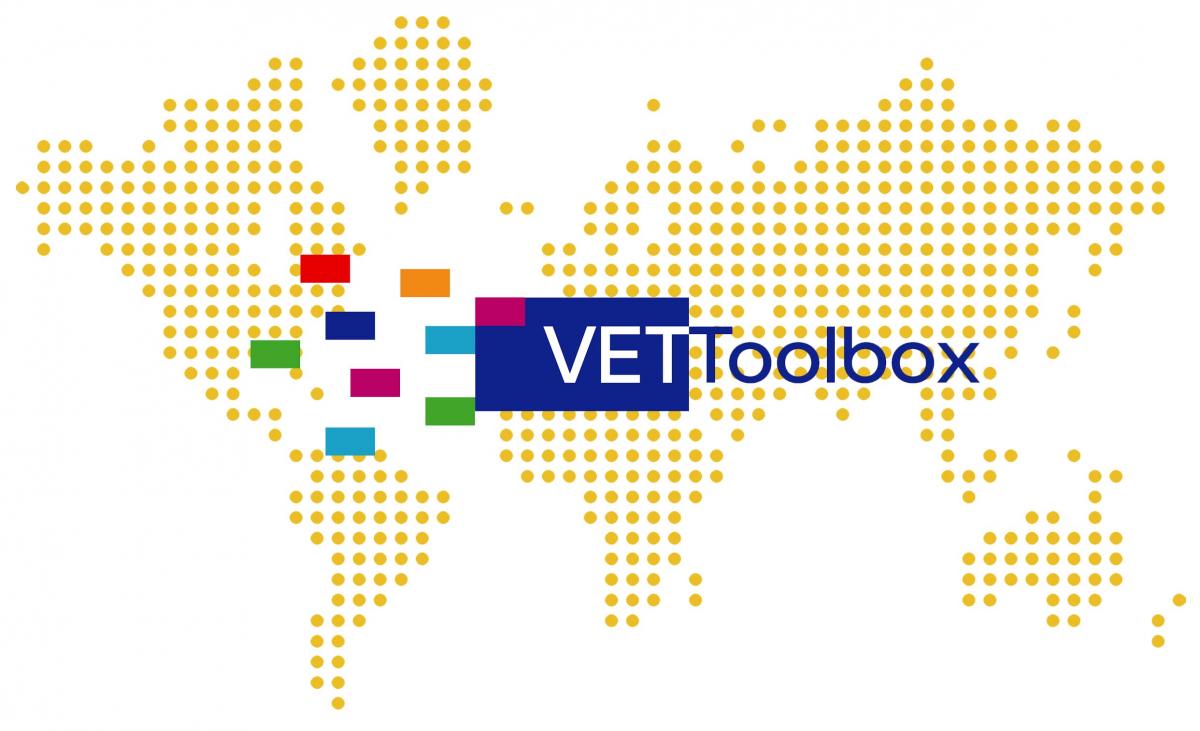
The VET Toolbox will start soon in
Thibaut MONNIER | 02/05/2018
PakistanThe VET Toolbox, through British Council, in partnership with the National Vocational & Technical Training Commission, will:Develop an apprenticeship handbookEngaging employers with regards to the Apprenticeship Act 2018 and in apprenticeship schemesCapacity building of TVET officials for effective implementation of apprenticeship lawsIncreasing Industry- Institute linkagesPartner institution: National Vocational & Technical Training CommissionGhanaThe VET Toolbox, through GIZ, in partnership with the National Board for Professional and Technician Examinations, will:Verify feasibility of different skills forecasting methodsBuild capacity in curricula update in consultation with private sectorIntroduce of CBET methodology in existing curricula, syllabi, and assessment and examination toolsUpdate of an engineering training programmeAdvice on introduction of modular programmesBotswanaThe VET Toolbox, through GIZ, in partnership with the EU delegation in Botswana, will:Provide a labour market analysis on tourism and livestockAdvice on approaches and mechanisms for overseeing, guiding and strengthening the TVET sub-sectorAdvice and guidance on mechanisms of consultation and participation of the private sectorContribute to the 11th EDF programme (private sector involvement and active participation in TVET)
-
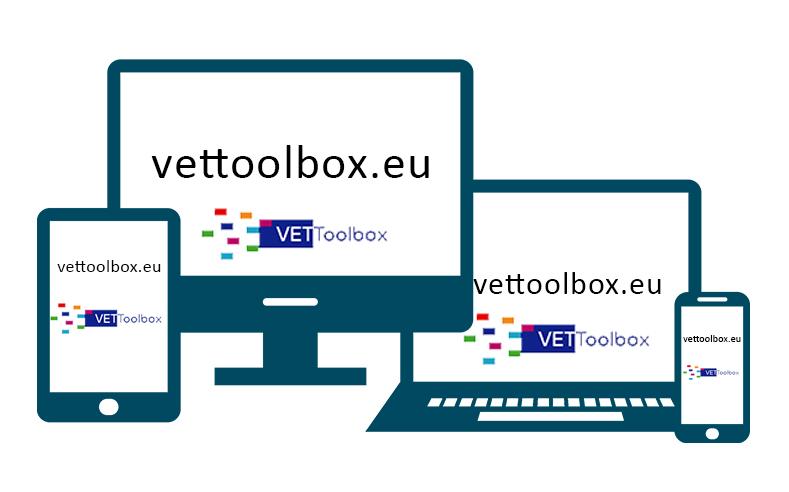
The VET Toolbox website is now online !
Thibaut MONNIER | 02/05/2018
Find all information about the VET Toolbox on www.vettoolbox.eu
